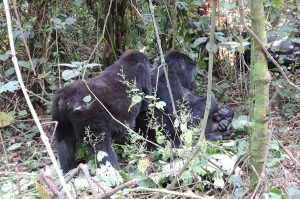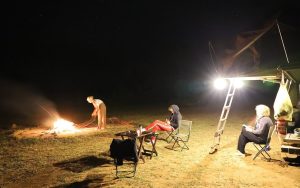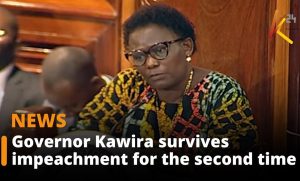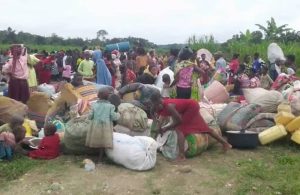BUJUMBURA — African leaders trying to end a decade of war in Burundi have complicated a weekend peace summit by sending mixed messages to rebels behind renewed fighting.
Impatient for a solution, regional leaders have both threatened and courted the most extreme of the Hutu armed groups involved in the conflict that has cost 300,000 lives.
The confusion confirms peace efforts are, at least momentarily, in disarray, analysts say.
”Everyone’s brainstorming for a solution. There is no plan as yet for getting things back on track,” said Francois Grignon of the International Crisis Group (ICG).
African leaders say an end to Burundi’s war between rebels of the Hutu majority and an army led by minority Tutsis will brighten prospects for stability throughout Africa’s Great Lakes region, long blighted by horrific communal massacres.
But the installation on April 30 of Domitien Ndayizeye as the first Hutu president in seven years, a move orchestrated by regional mediators under a three-year-old peace process, has failed to break deadlock between rebels and the army over how to bring about a ceasefire.
The rebel groups, based in the hills of the coffee growing country of 6.5 million, have never signed up to the South African brokered peace process and say it does little to end the domination of the Tutsi minority.
Mediators decided to hold a summit in Dar Es Salaam, Tanzania, on Sunday to push again for some form of rebel involvement in the process after more than 400 people were killed in new fighting between Hutu rebels of the Forces for National Liberation (FNL) and the army.
The FNL, denounced by critics as an unstable mix of ethnic fanatics and child soldiers, is the most resistant of the Hutu armed groups to the idea of talking peace with the government.
EXTREMIST
The new violence was triggered by the strongest FNL assault on Bujumbura’s suburbs in more than two years, a move that dramatically underscored the group’s relevance to any attempt to end a conflict that started in 1993.
The ferocity of the FNL assault clearly infuriated Ugandan President Yoweri Museveni, who raised eyebrows around the region on Tuesday by saying a military solution was needed to put the peace process back on track.
His stern remarks, which run counter to a longstanding consensus view that neither side can win Burundi’s war, prompted speculation about a bigger, more muscular role for an African Union (AU) force that is already in the country with the limited job of supervising a stalled disarmament process.
But Museveni’s stance was undercut on Thursday by the main mediator in the war, South African Deputy President Jacob Zuma, who announced he was inviting the FNL for separate talks after the summit to explore ways of bringing peace.
Zuma said he wanted to meet the FNL to test its recent public assertions that it was ready to enter negotiations.
Analysts say the mixed messages are confusing at a time when mediators should be united in their dealings with a rebel group that has proved highly resistant to pressure.
”The situation is quite desperate,” sighed South African analyst Jan van Eck, an expert on Burundi’s peace process.
”Zuma is talking a different language to Museveni — he wants to keep the door open to the FNL while Museveni wants to close it. One day the FNL get threats, the next day they get invitations.”
Although another group, the Forces for the Defence of Democracy (FDD), is believed to be bigger, the FNL is the more active around the capital and its participation in the peace process would be a huge boost.
There may be more luck at the summit with the FDD, which has at least signed a ceasefire with the government, albeit one that has been largely disregarded.
But the FDD is likely to argue that the mediators have done little to pressure the government to hasten political and security reforms demanded by Hutus, analysts say.
Army reform is the most difficult task in the peace process, according to human rights groups, who accuse the force with its 90-percent Tutsi officer corps of committing frequent massacres of Hutu civilians.
The army denies it deliberately kills civilians.
Museveni will chair the summit, bringing together the leaders of Uganda, Tanzania, Burundi, and possibly Rwanda, plus a South African delegation and FDD officials.
(Writing by William Maclean, Editing by Emma Batha)




